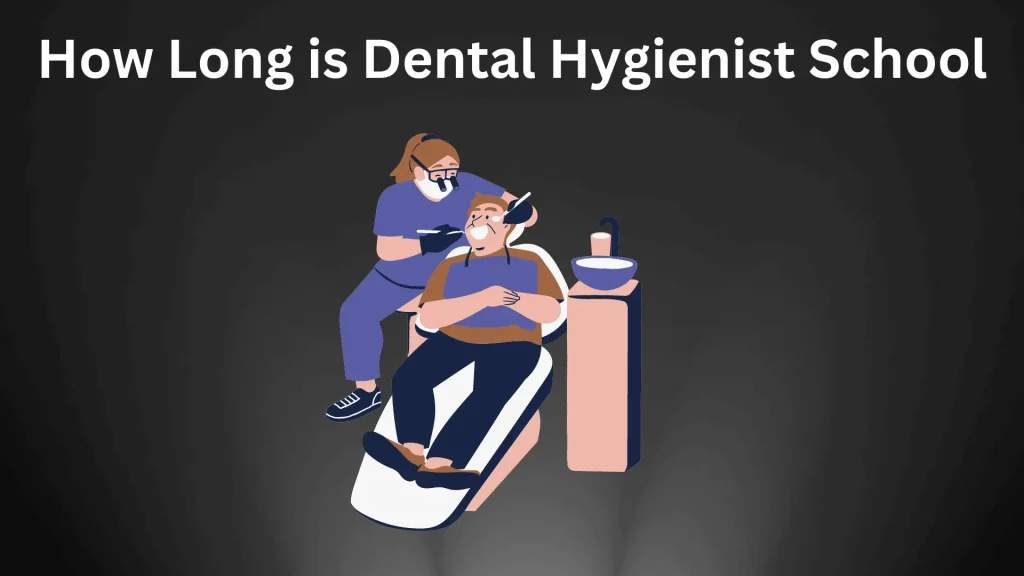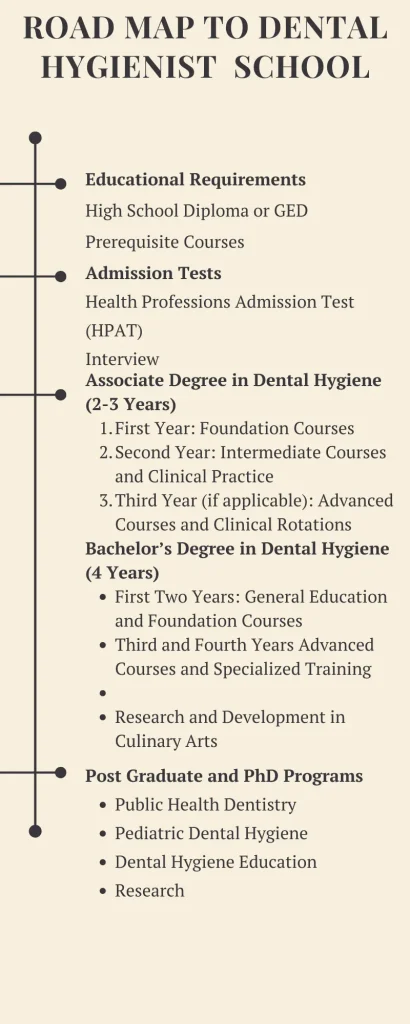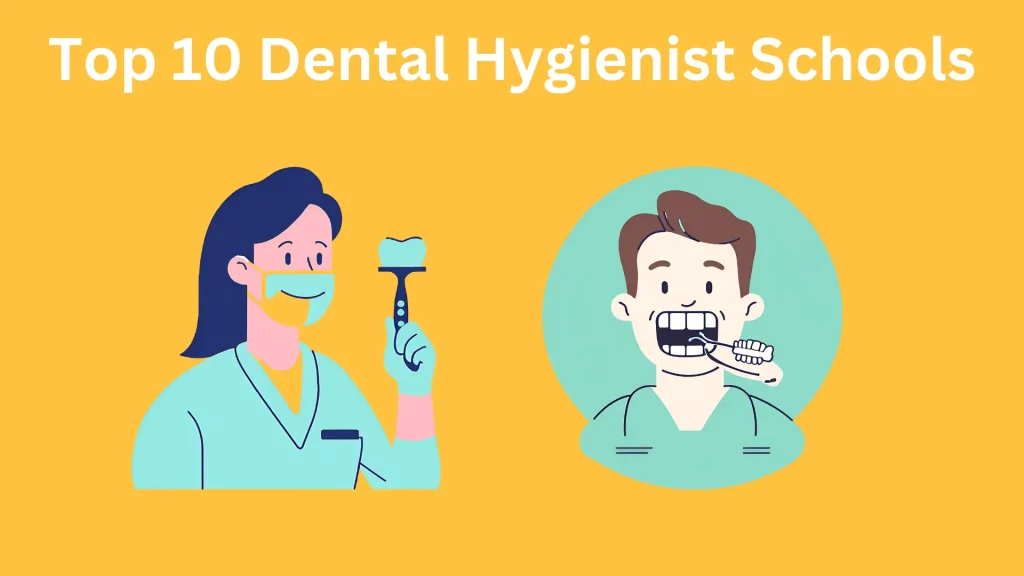How Long is Dental Hygienist School?
Deciding to pursue a career in dental hygiene is a commendable choice, as it plays a crucial role in maintaining oral health. One of the most common questions prospective students ask is, “How long is dental hygienist school?” Understanding the timeline and educational requirements is essential for planning your future in this rewarding field.
What is Dental Hygienist School?
Dental hygienist school provides specialized education and training for students who wish to become dental hygienists. These schools offer programs that combine theoretical knowledge with practical skills, preparing students to perform a variety of tasks, such as cleaning teeth, taking X-rays, and educating patients about oral hygiene. The curriculum is designed to ensure graduates are well-equipped to enter the workforce as competent and confident dental professionals.

Dental hygienist programs are typically offered at community colleges, technical schools, and universities. They provide a comprehensive education that covers various aspects of dental care, including anatomy, periodontology, radiography, and patient management.
How Long is Dental Hygienist School?
The length of dental hygienist school can vary depending on the program and the level of education pursued. Here’s a breakdown of the typical timeline for an undergraduate dental hygienist program:
Associate Degree in Dental Hygiene (2-3 Years)
First Year: Foundation Courses
- Introduction to Dental Hygiene: This course provides an overview of the dental hygiene profession, including its history, ethics, and the role of dental hygienists in the healthcare system.
- Anatomy and Physiology: Students learn about the structure and function of the human body, with a focus on the oral cavity and related structures.
- Dental Radiography: This course covers the principles and techniques of taking and interpreting dental X-rays.
Second Year: Intermediate Courses and Clinical Practice
- Periodontology: Students study the structures supporting the teeth, such as gums and bones, and learn about diseases affecting these areas.
- Pharmacology for Dental Hygienists: This course focuses on the drugs commonly used in dentistry, including their effects and interactions.
- Clinical Dental Hygiene I & II: Students gain hands-on experience in a clinical setting, performing procedures such as teeth cleaning, scaling, and polishing under supervision.
Third Year (if applicable): Advanced Courses and Clinical Rotations
- Community Dental Health: This course explores the role of dental hygienists in public health, including community outreach and education.
- Advanced Periodontics: Students delve deeper into the treatment and management of periodontal diseases.
- Clinical Dental Hygiene III: Continued clinical practice with increased complexity and autonomy.
Bachelor’s Degree in Dental Hygiene (4 Years)
First Two Years: General Education and Foundation Courses
- In addition to the foundational dental hygiene courses, students complete general education requirements, such as English, psychology, and social sciences.
Third and Fourth Years: Advanced Courses and Specialized Training
- Research Methods: Students learn about research design, data analysis, and evidence-based practice in dental hygiene.
- Advanced Clinical Practice: More extensive clinical experience, including rotations in various dental specialties.
- Leadership and Education: Courses designed to prepare students for roles in education, administration, or public health.

How to Enter Dental Hygienist School
Educational and testing requirements
To enter dental hygienist school, prospective students must meet specific educational and testing requirements. Here are the typical steps:
High School Diploma or Equivalent
A high school diploma or GED is required. High school courses in biology, chemistry, and health are beneficial.
College Entrance Exams
Many programs require applicants to take standardized tests such as the SAT or ACT.
Prerequisite Courses
Some programs require completion of prerequisite courses in subjects like anatomy, physiology, microbiology, and chemistry before admission.
Application Process
Submit an application to the desired dental hygienist program, including transcripts, test scores, and any required essays or personal statements.
Admission Test (if applicable)
Some programs may require applicants to take the Health Professions Admission Test (HPAT) or similar exams to assess their aptitude for healthcare professions.
Interview
Some programs conduct interviews as part of the selection process to evaluate the applicant’s communication skills and commitment to the profession.
Background Check and Immunizations
Accepted students may need to undergo a background check and provide proof of immunizations before starting the program.
Post Graduate and PhD Programs
For dental hygienists looking to advance their careers, post-graduate and PhD programs offer opportunities for specialization and research. These advanced programs allow dental hygienists to focus on specific areas within the field and contribute to the body of knowledge through research and teaching.
Specializations in Post-Graduate Programs
Public Health Dentistry
Focuses on community dental health, policy-making, and managing public health programs.
Pediatric Dental Hygiene
Specializes in dental care for children, including preventive measures and treatments.
Periodontics
Concentrates on the diagnosis and treatment of periodontal diseases.
Dental Hygiene Education
Prepares dental hygienists for roles as educators and program directors in academic settings.
Research
Involves conducting studies to improve dental hygiene practices and patient outcomes.
PhD in Dental Hygiene
A PhD in dental hygiene is typically aimed at those interested in academia and research. It involves extensive research, dissertation writing, and advanced coursework in areas such as biostatistics, epidemiology, and advanced dental science.
Top 10 Dental Hygienist Schools
Here is a list of the top 10 dental hygienist schools in the world, known for their excellent programs and comprehensive curricula:

University of Michigan (USA)
Offers Bachelor’s, Master’s, and PhD programs with specializations in clinical practice, education, and research.
University of North Carolina at Chapel Hill (USA)
Known for its rigorous Bachelor’s and Master’s programs focusing on clinical and community health.
University of Southern California (USA)
Provides a Bachelor’s and Master’s program with opportunities for research and specialization in pediatric and periodontics.
King’s College London (UK)
Offers a comprehensive Bachelor’s program with a strong emphasis on clinical practice and research.
University of Toronto (Canada)
Known for its Bachelor’s and Master’s programs with a focus on community health and advanced clinical practices.
University of Melbourne (Australia)
Offers Bachelor’s and post-graduate programs focusing on public health and clinical excellence.
New York University (USA)
Provides a range of programs from Bachelor’s to PhD with specializations in education and clinical practice.
University of Pennsylvania (USA)
Known for its strong emphasis on research and clinical practice in its Bachelor’s and Master’s programs.
Karolinska Institute (Sweden)
Offers Bachelor’s and Master’s programs with a focus on innovative research and advanced clinical training.
University College Dublin (Ireland)
Known for its comprehensive Bachelor’s program and strong emphasis on public health and community service.
Factors Affecting the Length of Dental Hygienist School
The length of dental hygienist school can vary based on several factors, including:
Program Type
Associate degree programs typically take 2-3 years, while Bachelor’s degree programs take 4 years.
Institution
Different schools have varying curricula and program lengths.
Specialization
Advanced degrees or specializations may require additional time.
Full-time vs. Part-time Enrollment
Part-time students may take longer to complete the program compared to full-time students.
Prerequisite Requirements
Completion of prerequisite courses prior to entering the program can affect the total time.
Clinical Experience Requirements
Programs with extensive clinical practice components may take longer to complete.
Personal Factors
Work, family responsibilities, and personal commitments can influence the duration of the program.
Final Verdict
Pursuing a career as a dental hygienist requires a significant investment of time and effort, but the rewards are well worth it. The length of dental hygienist school varies depending on the type of program and individual circumstances. Whether you choose an associate, bachelor’s, or advanced degree, the education you receive will prepare you for a fulfilling career in dental hygiene. The path you choose should align with your career goals and personal situation.
FAQs
How long does it take to become a dental hygienist?
Typically, an associate degree takes 2-3 years, while a bachelor’s degree takes 4 years. Advanced degrees and specializations can add additional time.
What are the prerequisites for entering a dental hygienist program?
Prerequisites often include courses in biology, chemistry, anatomy, and physiology. Specific requirements vary by program.
Can I work while attending dental hygienist school?
Many students work part-time while attending school, though balancing work and study can be challenging. Some programs offer flexible schedules to accommodate working students.
What is the difference between an associate degree and a bachelor’s degree in dental hygiene?
An associate degree is a shorter program focusing on the essential skills for entry-level positions, while a bachelor’s degree offers a more comprehensive education with opportunities for specialization and advanced practice.
Are there online programs for dental hygienist school?
Some schools offer hybrid programs that combine online coursework with in-person clinical training. Fully online programs are rare due to the hands-on nature of dental hygiene training.
